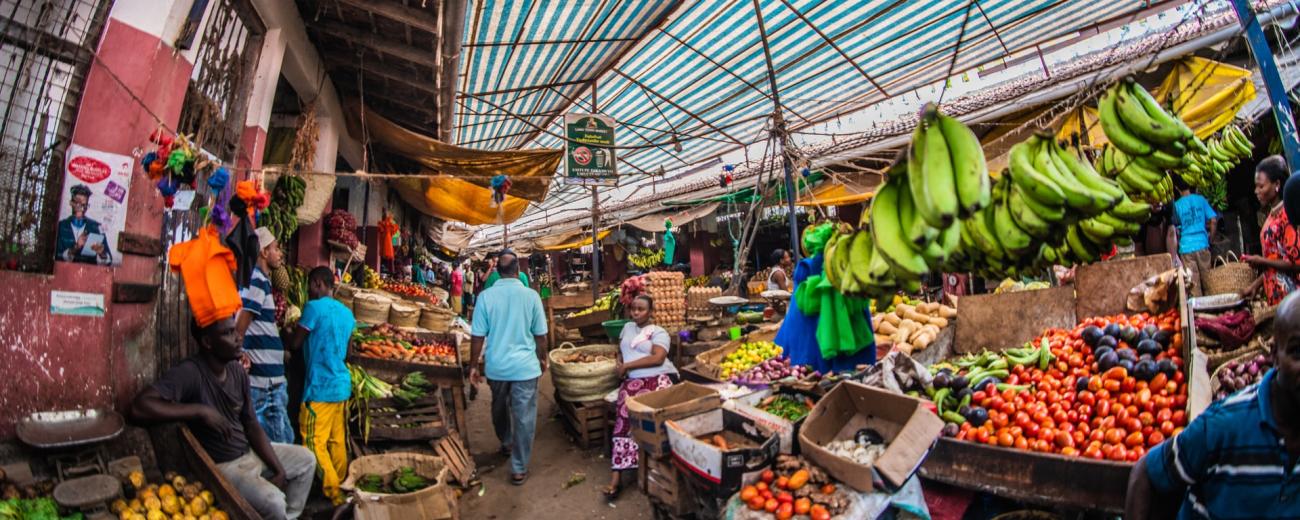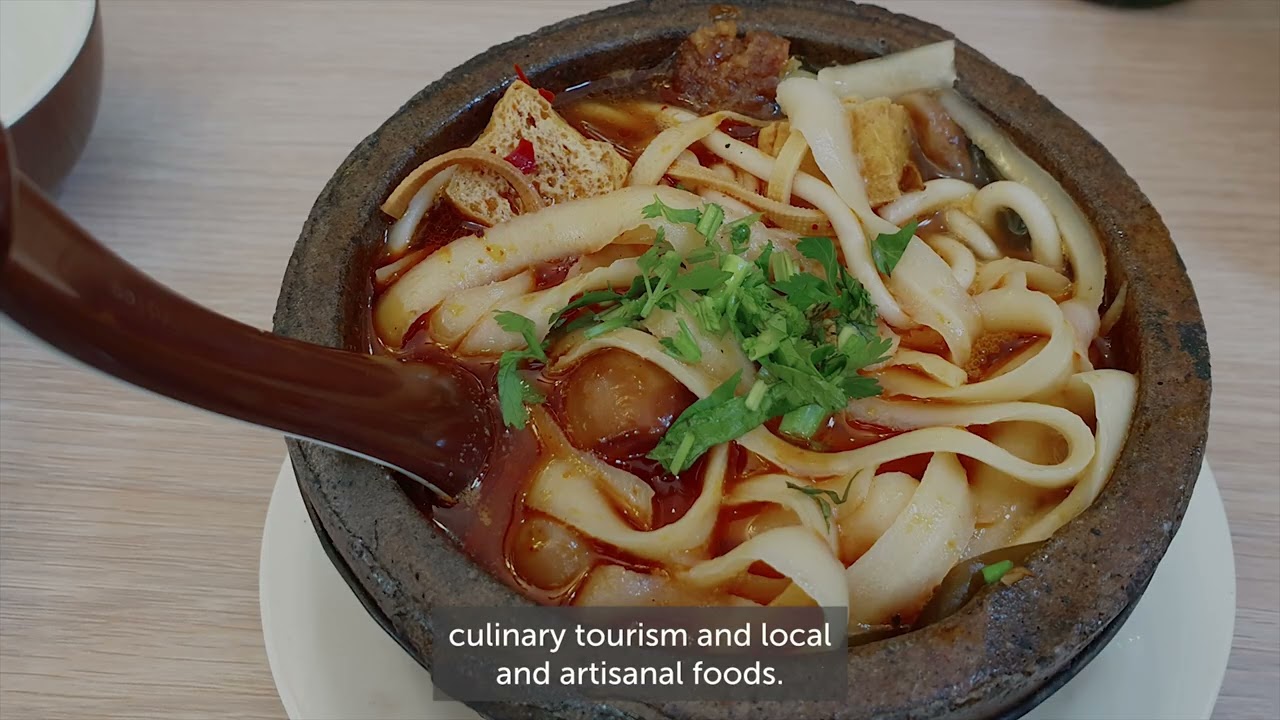MA Anthropology of Food


Key information
- Start date
- Duration
- 1
- Start of programme
- September
- Attendance mode
- Full Time
- Location
- SOAS on Campus
- Fees
-
Home student fees: £12,220 per year
Overseas student fees: £25,320 per yearPlease note that fees go up each year.
See postgraduate fees for further details. - Course code
- L6F1
- Entry requirements
-
We will consider all applications with 2:2 (or international equivalent) or higher. In addition to degree classification we take into account other elements of the application such as supporting statement. References are optional, but can help build a stronger application if you fall below the 2:2 requirement or have non-traditional qualifications.
-
Afghanistan: Qualifications (Bachelor equivalency): Master's degree
Equivalent to 2:ii: 80% or 3.3/4.0
-
Argentina: Qualifications (Bachelor equivalency): Titulo / Grado de Licenciado
Equivalent to 2:ii: 7/10
-
Australia: Qualifications (Bachelor equivalency): Bachelor degree
Equivalent to 2:ii: 2:2 or Credit or 65%
-
Austria: Qualifications (Bachelor equivalency): Bachelor degree
Equivalent to 2:ii: 2.5/5.0 and overall Pass (Bestanden)
-
Bahrain: Qualifications (Bachelor equivalency): Bachelor degree
Equivalent to 2:ii: 75% or GPA 3.0/4.0
-
Bangladesh: Qualifications (Bachelor equivalency): Bachelor’s from Bangladesh University of Engineering and Technology or Master's degree
Equivalent to 2:ii: 60% or GPA 3.0/4.0
-
Belgium: Qualifications (Bachelor equivalency): Licentiaat or Licencié
Equivalent to 2:ii: 13/20 or 65%
-
Botswana: Qualifications (Bachelor equivalency): Bachelor degree (5-year) or Master's from University of Botswana
Equivalent to 2:ii: GPA 3.5/5.0 or 65% or B- or Good
-
Brazil: Qualifications (Bachelor equivalency): Título de Bacharel / Título de Licenciado (4-year)
Equivalent to 2:ii: 7/10 or 70%
-
Brunei: Qualifications (Bachelor equivalency): Bachelor degree
Equivalent to 2:ii: Lower Second Class Honours with 50% overall
-
Bulgaria: Qualifications (Bachelor equivalency): Bachelor degree
Equivalent to 2:ii: 4.3/6
-
Cameroon: Qualifications (Bachelor equivalency): Diplôme d'Ingénieur/ Diplôme d'Études Supérieures de Commerce (5-year)
Equivalent to 2:ii: 12-13 assez bien (fair); 70-74; or B+
-
Canada: Qualifications (Bachelor equivalency): Bachelor degree
Equivalent to 2:ii: GPA 3.0/4.0 or 74-77% or overall B
-
China Qualifications (Bachelor equivalency): Bachelor degree (4-year)
Equivalent to 2:ii:
73% or 2.6/4.0 (C9 unis)
75% or 2.8/4.0 (Double First unis)
80% or 3.25/4.0 (all other unis) -
Colombia: Qualifications (Bachelor equivalency): Licenciado / Titulo (4-year)
Equivalent to 2:ii: 3.5/5.0
-
Croatia: Qualifications (Bachelor equivalency): Baccalaureus / Baccalaurea (Bachelor degree)
Equivalent to 2:ii: Overall score 3/5
-
Cyprus: Qualifications (Bachelor equivalency): Bachelor degree
Equivalent to 2:ii: 6.5/10
-
Czech Republic: Qualifications (Bachelor equivalency): Bachelor degree (180 ECTS)
Equivalent to 2:ii: 1.75/4.0 or High C 'dobre’ (good)
Information for prospective students from the Czech Republic
-
Denmark: Qualifications (Bachelor equivalency): Bachelor degree
Equivalent to 2:ii: 7/12 or 8/13 or grade C
-
Egypt: Qualifications (Bachelor equivalency): Bachelor degree
Equivalent to 2:ii: 70% or 3.0/4.0
-
Estonia: Qualifications (Bachelor equivalency): Bakalaurusekraad / University Specialist's Diploma / Professional Higher Education Diploma
Equivalent to 2:ii: 4.0/5.0
-
Finland: Qualifications (Bachelor equivalency): Bachelor / Kandidaatti / Kandidat (180 ECTS credits)
Equivalent to 2:ii: 3/5 or 2/3
-
France: Qualifications (Bachelor equivalency): Licence or Diplôme from a grande école
Equivalent to 2:ii: 11.5 out 20
-
Gambia: Qualifications (Bachelor equivalency): Master's degree (2-year)
Equivalent to 2:ii: GPA 3.0/4.3 or 64% or B
-
Germany: Qualifications (Bachelor equivalency): Bachelor degree (180 ECTS)
Equivalent to 2:ii: 2.6/5
-
Ghana: Qualifications (Bachelor equivalency): Bachelor degree
Equivalent to 2:ii: 2:2 (Second Class Lower Division) or GPA 3.25/5.0 or 60%
-
Greece: Qualifications (Bachelor equivalency): Bachelor degree
Equivalent to 2:ii: 6.50/10
-
Hong Kong: Qualifications (Bachelor equivalency): Bachelor degree
Equivalent to 2:ii: Upper second class or GPA 2.7/4.0 or 75% or B Minus
-
Hungary: Qualifications (Bachelor equivalency): Bachelor (Alapfokozat) or Diploma (Egyetemi Oklevél)
Equivalent to 2:ii: 3.5/5.0
-
Iceland: Qualifications (Bachelor equivalency): Bachelor degree (Baccalaureus or Bakkalarprof)
Equivalent to 2:ii: 7.0 out of 10
-
India: Qualifications (Bachelor equivalency): Bachelor degree
Equivalent to 2:ii: CGPA: 55-60% or 5.5/10 - 6.0/10
-
Iraq: Qualifications (Bachelor equivalency): Bachelor degree (Licence/Karshani)
Equivalent to 2:ii: 0.7
-
Israel: Qualifications (Bachelor equivalency): Bachelor degree
Equivalent to 2:ii: 70% or C+
-
Italy: Qualifications (Bachelor equivalency): Laurea (180 ECTS)
Equivalent to 2:ii: 100/110
-
Japan: Qualifications (Bachelor equivalency): Bachelor degree
Equivalent to 2:ii: 70% or C+ or 3.0
-
Jordan: Qualifications (Bachelor equivalency): Bachelor degree
Equivalent to 2:ii: 3.0/4.0 or 70%
-
Kazakhstan: Qualifications (Bachelor equivalency): Bachelors (Bakalavr Diplomi) or Specialist Diploma
Equivalent to 2:ii: GPA 3.0/4.0 or GPA 4.0/5.0 or B
-
Kenya: Qualifications (Bachelor equivalency): Bachelor degree
Equivalent to 2:ii: 2:2 or 60%
-
Kuwait: Qualifications (Bachelor equivalency): Bachelor degree
Equivalent to 2:ii: 3.0/
-
Latvia: Qualifications (Bachelor equivalency): Bakalaura Diploms (Bachelor's) or Profesionālā Bakalaura Diploms
Equivalent to 2:ii: 7/10
-
Lebanon: Qualifications (Bachelor equivalency): Bachelor degree / Licence
Equivalent to 2:ii: 75% or Grade B-/C+ or GPA 2.8/4.0 or 14/20
-
Liberia: Qualifications (Bachelor equivalency): Master's degree
Equivalent to 2:ii: 75% or 2.8/4.0
-
Libya: Qualifications (Bachelor equivalency): Bachelor Degree from selected institution
Equivalent to 2:ii: 75% or GPA 3.0/4.0
-
Lithuania: Qualifications (Bachelor equivalency): Bachelors / Bakalauro (180 ECTS)
Equivalent to 2:ii: 7.5/10
-
Malawi: Qualifications (Bachelor equivalency): Master's degree
Equivalent to 2:ii: 70% or GPA 3.0/4.0
-
Malaysia: Qualifications (Bachelor equivalency): Bachelor degree
Equivalent to 2:ii: 3.0/4.0 or B (Class 2 Division 2)
-
Malta: Qualifications (Bachelor equivalency): Bachelor degree
Equivalent to 2:ii: Lower Second Class with 65% or Category IIB
-
Mexico: Qualifications (Bachelor equivalency): Titulo de Licenciado
Equivalent to 2:ii: 8/10 or 80%
-
Morocco: Qualifications (Bachelor equivalency): Licence / Licence d'Etudes Fondamentales / Licence Professionnelle
Equivalent to 2:ii: 13/20
-
Nepal: Qualifications (Bachelor equivalency): Master's degree / Bachelor degree (4-year)
Equivalent to 2:ii: 70%
-
Netherlands: Qualifications (Bachelor equivalency): Bachelor degree
Equivalent to 2:ii: 6.5/10 or GPA 3.0
-
New Zealand: Qualifications (Bachelor equivalency): Bachelor degree
Equivalent to 2:ii: Majority of credited modules B- or above
-
Nigeria: Qualifications (Bachelor equivalency): Bachelor degree
Equivalent to 2:ii: Lower Second Class or 55% or GPA 3.0/5.0 or 2.5/4.0 or 4.0/7.0
-
Norway: Qualifications (Bachelor equivalency): Bachelors / Bachelorgrad (180 ECTS) or Candidatus /a magisterii
Equivalent to 2:ii: Grade C (with at least 80 ECTS) at grade B or 3.2
-
Oman: Qualifications (Bachelor equivalency): Bachelor degree
Equivalent to 2:ii: 3.0/4.0
-
Pakistan: Qualifications (Bachelor equivalency): Bachelor (4-year) / Master's from HEC recognised institution
Equivalent to 2:ii: CGPA 2.7 or 65%
-
Philippines: Qualifications (Bachelor equivalency): Master’s from recognised institution or Centre of Excellence / Bachelor from prestigious institution or Centre of Excellence
Equivalent to 2:ii:
Prestigous Universities: GPA 3.3/4.0 or 1.75/5.0 or Grade B or 83%
Recognised Universities: GPA 3.5/4.0 or 2.0/5.0 or Grade B or 87% -
Poland: Qualifications (Bachelor equivalency): Licencjat or Inżynier (3-year)
Equivalent to 2:ii: 4.25/5
-
Portugal: Qualifications (Bachelor equivalency): Licenciado (180 ECTS)
Equivalent to 2:ii: 15/20
-
Qatar: Qualifications (Bachelor equivalency): Bachelor degree
Equivalent to 2:ii: GPA 3.0/4.0 or 3.5/5.0 or 70% or 7/10
-
Romania: Qualifications (Bachelor equivalency): Diplomă de Licenţă / Diplomă de Inginer / Diplomă de Urbanist Diplomat
Equivalent to 2:ii: 8/10
-
Russia: Qualifications (Bachelor equivalency): Diplom Bakalavra or Specialist Diploma
Equivalent to 2:ii: 3.8/5.0
-
Rwanda: Qualifications (Bachelor equivalency): Bachelor (4-year)
Equivalent to 2:ii: Lower Second Class Honours or 65-69% or 14/20
-
Saudi Arabia: Qualifications (Bachelor equivalency): Bachelor degree
Equivalent to 2:ii: GPA of 3.0/4.0 or 3.5/5.0 or overall 70%
-
Singapore: Qualifications (Bachelor equivalency): Bachelor degree
Equivalent to 2:ii: CAP 3.5/5.0 or 3.0/4.0
-
Slovakia: Qualifications (Bachelor equivalency): Bakalár / Bachelor
Equivalent to 2:ii: 70% or 2.0 overall or C
-
South Africa: Qualifications (Bachelor equivalency): Bachelor (4-year)
Equivalent to 2:ii: 60%
-
South Korea: Qualifications (Bachelor equivalency): Bachelor degree
Equivalent to 2:ii: GPA 2.7/4.0 or 3.0/4.3 or 3.3/4.5
-
Spain: Qualifications (Bachelor equivalency): Título de Grado / Título de Licenciado / Título de Ingeniero / Titulo de Arquitecto
Equivalent to 2:ii: 6.5/10 or GPA 1.75/4.0
-
Sri Lanka: Qualifications (Bachelor equivalency): Bachelor Special Degree or Professional Degree (4-year)
Equivalent to 2:ii: 55% or 2:2 or GPA 3.0/4.0
-
Sudan: Qualifications (Bachelor equivalency): Bachelor (5-year)
Equivalent to 2:ii: 65%+ or B
-
Sweden: Qualifications (Bachelor equivalency): Bachelor degree / Kandidatexamen / Yrkesexamen
Equivalent to 2:ii: B (90 credits) and C (90 credits) or Very Good (70 credits) and Good (110 Credits) or C (180 credits)
-
Switzerland: Qualifications (Bachelor equivalency): Diplom / Diplôme / Lizentiat / Staatsdiplom / Diplôme d’Etat
Equivalent to 2:ii: Overall 4.5/6 or 7/10 or 2.5/5
-
Syria: Qualifications (Bachelor equivalency): Licence / al-ijaza-fi / Bachelor
Equivalent to 2:ii: 70%+ or 'Good'
-
Taiwan: Qualifications (Bachelor equivalency): Bachelor degree
Equivalent to 2:ii: 68-70% or GPA 2.8/4.0-3.0/4.0
-
Thailand: Qualifications (Bachelor equivalency): Bachelor degree
Equivalent to 2:ii: GPA 3.0/4.0
-
Tunisia: Qualifications (Bachelor equivalency): Diplôme National d'Ingénieur / Diplôme National d'Architecture / Licence / Maîtrise
Equivalent to 2:ii: 12 out of 20
-
Turkey: Qualifications (Bachelor equivalency): Lisans Diplomasi
Equivalent to 2:ii: GPA 2.6/4 from the top universities and 3.0/4 from all others
-
Uganda: Qualifications (Bachelor equivalency): Bachelor degree
Equivalent to 2:ii: 2:2 (Lower Second) or B or GPA 3.0/5.0
-
Ukraine: Qualifications (Bachelor equivalency): Bachelor degree or Specialist Diploma
Equivalent to 2:ii: 8/12 or 3.8/5
-
United Arab Emirates: Qualifications (Bachelor equivalency): Bachelor degree
Equivalent to 2:ii: GPA 3.0/4.0 or 3.2/5.0
Information for prospective students from the United Arab Emirates
-
United States of America: Qualifications (Bachelor equivalency): Bachelor degree
Equivalent to 2:ii: GPA 3.0/4.0
-
Vietnam: Qualifications (Bachelor equivalency): Bachelor degree (4-year)
Equivalent to 2:ii: Overall score of 6.5/10
-
Yemen: Qualifications (Bachelor equivalency): Master's degree
Equivalent to 2:ii: Overall 'Good' (71-77%) or Aden University 80-83% (or 3.0/4.0)
-
Zambia: Qualifications (Bachelor equivalency): Master's degree
Equivalent to 2:ii: 65% or B or Credit or GPA 1.7/2.5 or 3.3/5.0
-
Zimbabwe: Qualifications (Bachelor equivalency): Bachelor degree
Equivalent to 2:ii: 2:2 or 65%
-
See international entry requirements and English language requirements
Course overview
The MA Anthropology of Food programme offers you the opportunity to explore historically and culturally variable foodways, from foraging to industrial food, from Asia, Africa and the Middle East to Europe and the Americas.
You will examine the roles that food classification, production, distribution, exchange, cooking and eating play in social organisation, differentiation, religious practice and cultural identity, and in mediating our relationships with non-human beings and surroundings. You will also explore the trans-regional and trans-national movements of foods and culinary practices and the role of food in human migrations, as well as the formation of regional and national cuisines.
You will study the passage of food from plant to palate, and examine who benefits, and who suffers, from contemporary modes of food production, exchange, preparation and consumption. You will address debates on the impact of contemporary food systems on food safety, dietary health, agrarian livelihoods and environmental sustainability and examine concerns over the alleged demise of family meals, traditional food knowledge and cooking skills.
Food activism, including digital food activism and movements toward sustainable food production and against food waste, and movements advocating fair trade, veganism and vegetarianism are explored in diverse cultural contexts. You will also address initiatives to protect local and artisanal foods, including promotions of heritage foods and food tourism in rural development and nation-building.
Why study MA Anthropology of Food at SOAS?
- SOAS is ranked 5th in the UK and 12th in the world for Anthropology (QS World University Rankings 2023)
- SOAS is ranked 6th in the UK for employability (QS World University Rankings 2023).
The MA programme in Food Anthropology is run in collaboration with the SOAS Food Studies Centre, an interdisciplinary research centre housed in the Department of Anthropology and Sociology.
Structure
Learn a language as part of this programme
Degree programmes at SOAS - including this one - can include language courses in more than forty African and Asian languages. It is SOAS students’ command of an African or Asian language which sets SOAS apart from other universities.
The programme consists of 180 credits in total : 120 credits of taught modules and a dissertation of 10,000 words at 60 credits.
There are three types of taught modules: Compulsory (60 credits), Guided Options (30 credits, chosen from Lists A and B below), and Open Options (30 credits, chosen from Lists A, B or C below or from the School-wide open options list, including languages).
Important notice
The information on the website reflects the intended programme structure against the given academic session. The modules are indicative options of the content students can expect and are/have been previously taught as part of these programmes. However, this information is published a long time in advance of enrolment and module content and availability is subject to change.
Compulsory
Core
Guided options List A
You must select a min of 15 credits from List A; a max of 30 credits may be taken if you have not taken any option from List B
Guided options List B
Teaching and learning
Modules
During the academic year, modules are delivered through a combination of lectures, tutorials and/or seminars. Students can expect an average of two hours of classroom time per week for each module. Outside of the classroom, students explore topics of the module through independent study and through personal exchanges with teachers and fellow students. In some cases, modules are taught by several teachers within the department to provide students with an array of perpsectives on the subject. All modules involve the active participation of students in the discussion of ideas, viewpoints and readings.
Dissertation
The MA Anthropology of Food culminates in a 10,000-word dissertation, based on original research on a topic of the student's own choosing and developed in discussion with a supervisor.
SOAS Library
SOAS Library is one of the world's most important academic libraries for the study of Africa, Asia and the Middle East, attracting scholars from all over the world. The Library houses over 1.2 million volumes, together with significant archival holdings, special collections and a growing network of electronic resources.
Scholarships
Employment
The MA Anthropology of Food programme has a first-rate employability record. SOAS graduates move on to find employment in various fields.
Recent Department of Anthropology and Sociology graduates have been hired by:
- Allen & Overy
- BBC
- British Council
- Deloitte
- Hackney Migrant Centre
- IFAD (International Fund for Agricultural Development)
- IOM- UN Migration
- Media 52
- New York Times
- Social Mobility Foundation
- The Week
- UNICEF
- United Nations Development Programme
- World Bank Group
Find out about our Careers Service










